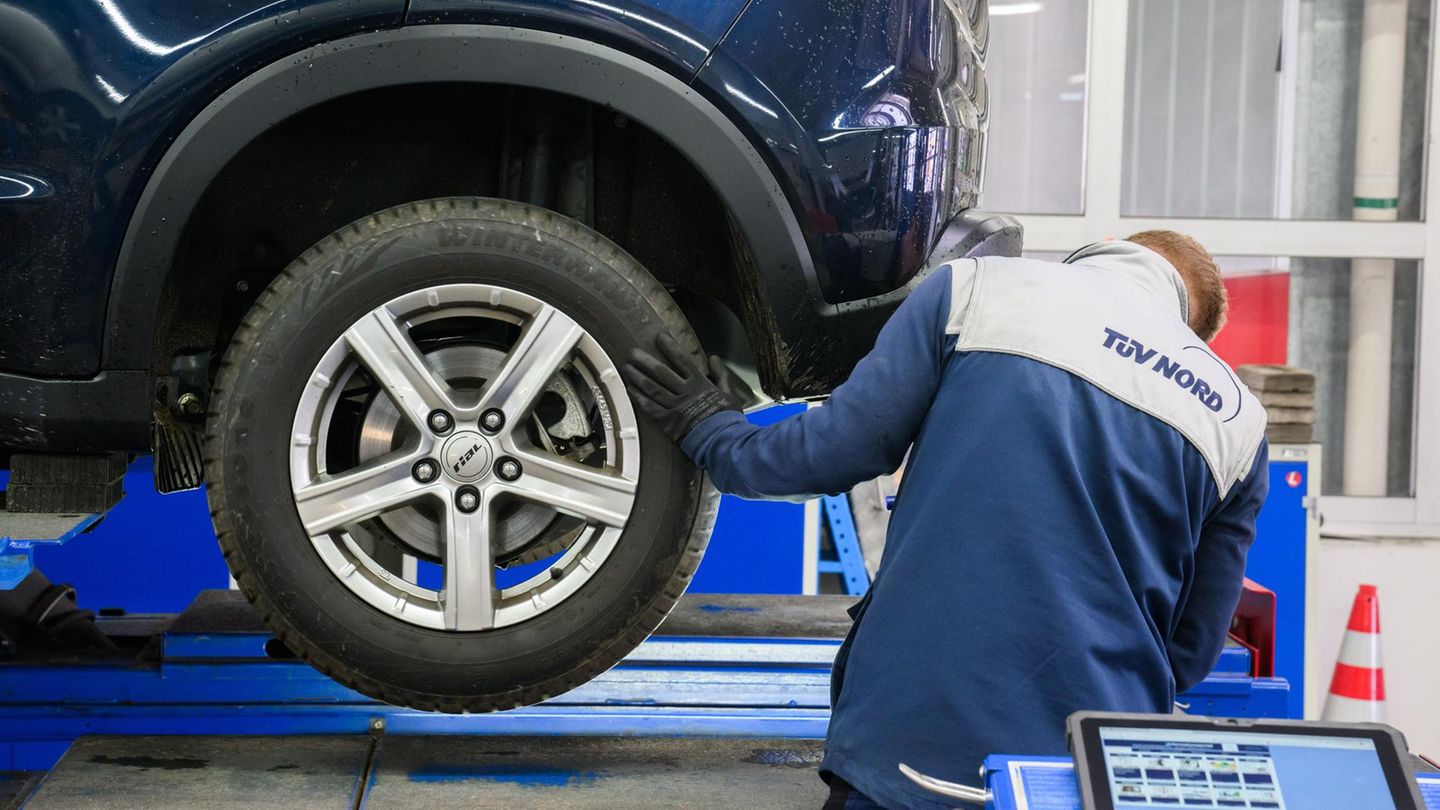For more traffic safety
Plan from Brussels: EU Commission wants to send old cars to TÜV more often
Copy the current link
Add to the memorial list
The European Commission is launching new rules for traffic safety. One of the suggestions hits owners of older cars: in the future they should be TÜV annually.
According to the EU Commission, cars and vans that are older than ten years should have to go to the TÜV more often in the future: not every two years, but every year. The Commission also wants to prescribe new test methods for fine dust and nitrogen oxide to prevent fraud.
Before this requirement can come into force, the European Parliament and the EU countries must also agree to the proposal.
EU transport commissioner Apostolos Tzitzikostas spoke of a “big step forward to make our streets safer and our air cleaner”. The aim of the new rules is to “recognize vehicles with high pollutant emissions, including manipulated vehicles,” said the Commission. Brussels wants to introduce specific controls for electric cars.
“The EU is determined to reduce the number of traffic dead and seriously injured by 50 percent by 2030,” said Tzitzikostas. The Commission’s proposal to unsafe vehicles, which contribute to accidents, deaths and injuries, said the authority.
In addition to more frequent inspections, the Commission also suggests that mileage in national databases should be recorded. In addition, new tests for electronic security systems and new test methods for emissions are part of the suggestions.
The EU Commission hopes for a fewer traffic fatalities
The aim of the more frequent inspections is to reduce the number of traffic accidents and the accident victim. The Commission expects the introduction of annual exams of cars and vans to one percent fewer traffic dead and injuries.
Older vehicles are more prone to breakdown, and studies have also shown that they were more often involved in accidents and that they had a higher proportion of vehicles with high pollutant emissions, the Brussels authority continued.
“Since cars are responsible for the vast majority of deaths, and even if technical defects only make up a relatively small proportion of the causes of the accident, the annual inspection of older cars can make a significant difference. This applies in particular to security.”
No more accidents – how urban planning and vehicle technology make the streets safe

© Ajuntament de Barcelona / Commons
More
Open the image subtitle
Back
Further
ADAC looks critical of annual inspections at TÜV
“The EU Commission’s proposals to introduce an annual compulsory inspection for cars that are older than ten years do not consider the ADAC necessary,” said the traffic club at the request of the German Press Agency. A tightening of the test intervals, especially in Germany, is not appropriate.
The main inspection is established and socially recognized that its efficiency is essential. “Otherwise, social acceptance could be endangered,” said the ADAC.
Critical reactions are already coming from the EU Parliament. “There is a lot of additional bureaucratic effort. An annual review period for older vehicles drives the costs for car owners,” said CSU MP Markus Ferber. The regulations will be looked at closely, he announced. The AfD MP Siegbert Droese sees the proposal as an “attack on freedom”.
The revision of European control requirements is “in principle good,” said CDU transport politician and EU MP Jens Gieseke. However, he rejected the proposal for an annual TÜV for older vehicles with reference to higher costs for drivers. The previous system is “sufficient for older cars”.
Bavaria’s Transport Minister Christian Bernreiter (CSU) announced: “The demand for an annual compulsory inspection for older cars is a negative example of how the EU overwhelms people with bureaucracy.” The claim is disproportionate.
In Germany main inspection in principle every two years
In Germany, vehicles usually have to go to the main inspection every two years, regardless of how old a vehicle is. For new cars, the first inspection is only due after 36 months. If you miss the deadline for the appointment and do not pick up a new TÜV badge in time, you have to expect a fine in the event of a vehicle control. In many EU countries, older cars have to be inspected annually.
The defect rate for main inspections (HU) increases significantly in cars with age, as well as figures from the Federal Motor Transport Authority. In 2023, almost 94 percent without defects in 2023 came from cars aged three to five years – typically during the first main inspection.
With cars aged seven to nine, it was only 77 percent and for cars over nine years – there is no more precise division above this brand – only 54 percent. In this top age group, the examiners find on average at least considerable defects in more than every fourth car. Almost one percent even had dangerous defects there or was even traffic uncertain, which is a multiple of the values from the younger age groups.
According to the Federal Motor Transport Authority in Germany, almost 22 million cars were brought up for the main inspection in Germany. More than half was over nine years old. There are no figures for 2024.
AFP · dpa
RW
Source: Stern
I’m a recent graduate of the University of Missouri with a degree in journalism. I started working as a news reporter for 24 Hours World about two years ago, and I’ve been writing articles ever since. My main focus is automotive news, but I’ve also written about politics, lifestyle, and entertainment.




